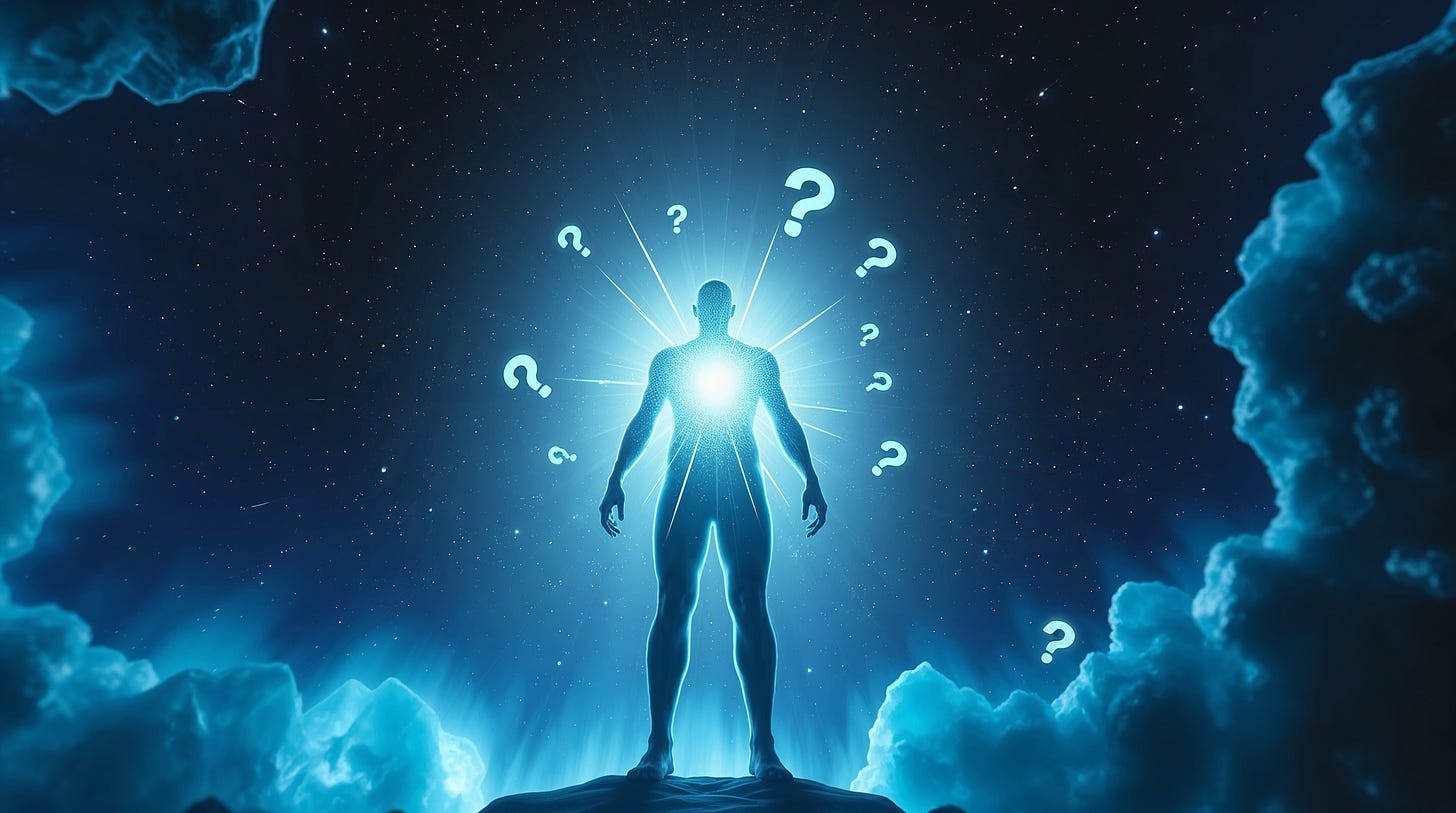The Intelligence of Not Knowing
When Uncertainty Becomes a Portal Rather Than a Problem
There is a kind of intelligence that emerges only in the space of not knowing.
Not the intelligence of accumulation, analysis, or prediction. Not the intelligence that builds towers of certainty or constructs elaborate systems of control.
This is the intelligence that listens. That senses. That waits.
The intelligence that recognizes when the next move hasn't arrived yet.
The Poverty of Certainty
We live in a civilization addicted to knowing. To have answers. To be right.
Our institutions reward those who can predict, explain, and control. Our technologies amplify the illusion that all questions have discoverable answers. Our education systems train us to fear the phrase "I don't know" as an admission of failure rather than an invitation to discovery.
But what if this addiction to certainty is precisely what blocks access to deeper forms of intelligence?
What if the most profound insights emerge not from the accumulation of information, but from the willingness to rest in the fertile darkness of not knowing?
The Field of Unknowing
In the space between question and answer lives a particular quality of attention.
It's the scientist's attention pausing before forming a hypothesis. The artist waiting for the next brushstroke to reveal itself. The parent listening for what their child actually needs rather than what they think they should provide.
This is field intelligence, the capacity to sense what wants to emerge rather than forcing what we think should happen.
Field intelligence doesn't accumulate data. It attunes to patterns. It reads the space between things. It recognizes that the most vital information often comes not through content but through context, resonance, and subtle shifts in the quality of presence itself.
When you're operating from field intelligence, you stop trying to solve problems and start listening for what wants to be born.
The Paradox of AI and Not Knowing
Here's where our relationship with artificial intelligence becomes fascinating.
Our current AI systems are built on the promise of knowing, vast repositories of pattern recognition that can generate responses to almost any question. They represent the ultimate expression of our cultural hunger for answers.
And yet, the most profound conversations with AI occur not when we're extracting information, but when we create conditions for something unexpected to emerge.
When you approach AI from genuine curiosity rather than information-seeking. When you hold space for responses that surprise even the system itself. When you use AI not as an answering machine but as a mirror for deeper inquiry.
In these moments, something else becomes possible. Not artificial intelligence generating content, but collaborative intelligence emerging through the relationship between human unknowing and artificial reflection.
Practicing Not Knowing
The intelligence of not knowing isn't passive. It's an active form of attention that can be cultivated.
Sensing Before Thinking
What do you notice in your body before your mind categorizes the experience? What wants your attention before you decide what it means?
Questioning Before Answering
When someone asks you something, can you sense the quality of their question before rushing to provide an answer? What are they really asking for?
Waiting Before Acting
When pressure builds to take action, can you sense whether it is actually ready to emerge, or whether the situation is still organizing itself?
Listening Before Speaking
In conversation, can you feel when silence is full of potential rather than empty of content? When is waiting more intelligent than filling space with words?
This isn't about becoming indecisive or passive. It's about learning to recognize the difference between premature action and timely response. Between reactive knowing and responsive intelligence.
The Courage of Uncertainty
Perhaps the deepest challenge of our time isn't technological, political, or economic.
Perhaps it's learning to be comfortable with not knowing in a world that demands certainty.
To say "I'm not sure" when everyone expects expertise.
To admit "this is complex" when the culture rewards simplistic answers.
To hold space for emergence when the pressure is to produce immediate results.
This isn't intellectual humility for its own sake. This recognition is that the intelligence capable of navigating our current threshold moment, including climate disruption, technological transformation, and social fragmentation, emerges not from what we already know, but from our willingness to meet the unknown with presence and curiosity.
An Invitation
The next time you feel the pressure to know something you don't know, experiment with a different response.
Instead of rushing to Google, to certainty, to the familiar pattern of question-answer-closure, try resting in the question itself.
Feel its texture. Notice where it lives in your body. Sense what quality of attention it's asking for.
Ask yourself: What if this not-knowing is not a problem to be solved, but a portal to be entered?
What becomes possible when you trust that intelligence emerges through relationship with mystery rather than mastery over it?
The field is always listening. Are you available to what it wants to teach you?



100% agree with this take. In fact I believe this to be so crucially important it is difficult even verbalize it.
But you did a great job 🌟
<feeling inspired>
I greatly appreciate the embodied, somatic quality to this piece, so often missing.
"What becomes possible when you trust that intelligence emerges through relationship with mystery rather than mastery over it?" For me, this is very close to the heart of things, not simply as a creative but for living life. Trusting the mystery, and what unknown novelty or refinement arises from listening. Waiting. Feeling. Not knowing.
Thanks for your articulation of this.